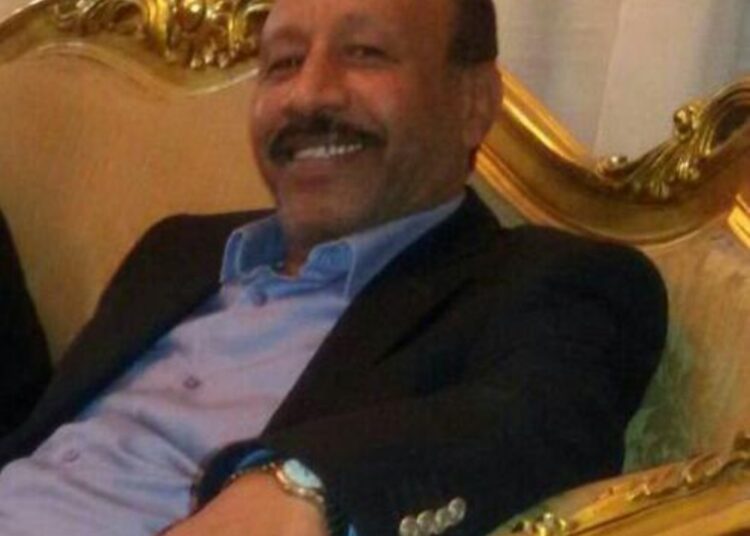How Mubarak’s two predecessors have been immortalised? — The causes of Mubarak’s emotional torture — His last and most difficult battle at age 88 — A brief epitaph — Mubarak’s surprising disclosure to a foreign correspondent about his lifelong dream — The difficult task that fell upon Mubarak early in his presidency — Why should Mubarak be given credit?
A dismayed and shocked leader
As it has already been remarked in the previous chapter, Mubarak felt dejected, even shocked that he would be airbrushed out of history, whereas his predecessors Gamal Abdel Nasser and Anwar Sadat have taken their places in history of Egypt and of the entire Arab world. Sadat achieved immortality when, after his tragic death in 1981, he was buried beneath the Tomb of the Unknown Solider in Cairo’s eastern district of Nasr City. The 33.6m high pyramid-like structure signifies the ancient Egyptians’ religious belief in immortality. Its four sides are inscribed with randomly selected names of the fallen in the October 1973 War: their souls are believed to soar to eternity through the apex of the pyramid.
On the other hand, like members of Prophet Mohammed’s family and his companions, who died and are buried in tombs annexed to grand mosques across Egypt, the mausoleum of president Gamal Abdel-Nasser, who died in 1971, is annexed to a mosque in Cairo’s northern district of Kobri Al-Kobbah. The message, which needs no elaboration, will go down in history. There will come a time when simple people visit the mausoleum of Gamal Abdel-Nasser, the saint of socialism in the Arab world, to ask for his blessings. It is interesting to note that Gamal Abdel-Nasser and Anwar Sadat in their lifetimes gave instructions for the construction of the grand mosque and the pyramid mausoleum. Mubarak ignored the idea outright. When he died quietly in 2020 at 92, Mubarak was buried next to his grandson in the family cemetery. In his capacity as a war hero, he was honoured with a military funeral.
In his appeal to history to declare his innocence, Mubarak must have been emotionally tortured by the thought that his epitaph would read: ‘Born and died in Egypt’. It did not by any stretch of the imagination occur to Mubarak that the day would come when the storm would burst about his ears, and that his last and most difficult battle in his military or presidential career would be fought to defend himself and his family from disgrace and shame heaped on their heads by his people.
Before proceeding with this narrative, it is necessary to put forward certain details for discussion to see whether his agonising situation lay at the door of his presidential palace. After the October War victory in 1973, Mubarak was handpicked by president Sadat to play the ceremonial role of vice-president. However, Mubarak surprised a foreign correspondent by disclosing his lifelong dream after he hung his uniform in the wardrobe. He said that he dreamt of acting as His Excellency Egyptian Ambassador in Switzerland. His extraordinary dream remained unfulfilled. He was destined to be saddled with presidential responsibilities during one of Egypt’s most chaotic periods. Likewise, Mubarak was destined to leave presidency as Egypt plunged into political upheaval.
The assassination of Sadat at the hands of jihadis uncovered the wolf under the sheep’s clothing. To Mubarak fell the task of regaining social peace and stability after the assassins of Sadat unleashed their brutalities and savageness against Copts and police officers. He was also tasked with bailing out the country’s economy. Mubarak’s advisers declared that Egypt was heavily in debt and only a miracle would help.
Undoubtedly, Mubarak deserved credit for achieving substantial successes in economy. He should also be acknowledged for not allowing external or internal factors to trouble the still waters of peace, stability and his hard-fought economic gains at home.
He won greater credit for restoring Egypt’s diplomatic relations with Arab states, which had boycotted his country after his predecessor Sadat had visited Israel to call for peace. Nor did Mubarak allow Desert Storm in Iraq and Gulf area in early 1991 spill over with negative consequences into Egypt and wreck his gains at home. Rather, he persuaded the Gulf states and the US-led allies, which fought Iraqi president Saddam Hussein, to halve Egypt debts in exchange for deploying Egyptian troops in the Gulf to take part in the expulsion of Iraqi forces out of Kuwait.
However, Egyptians could not fail to note that the tide of prosperity, which, admittedly, Mubarak’s wise foreign policy had brought to the country, had helped a certain group of people to grow rich.
(To be continued)






Discussion about this post